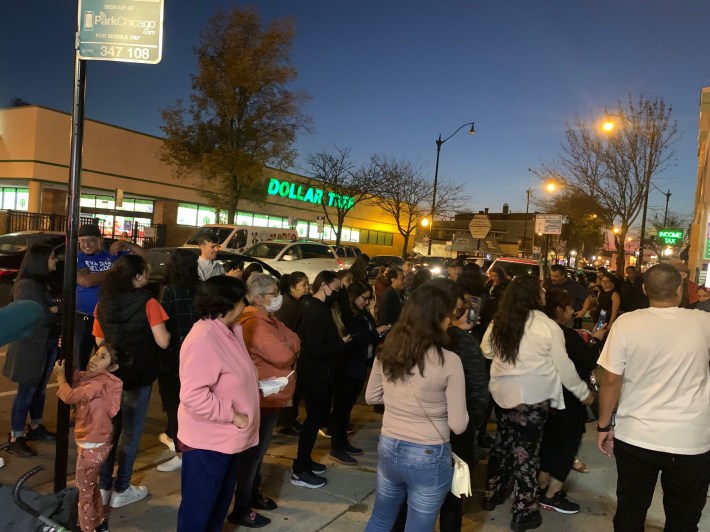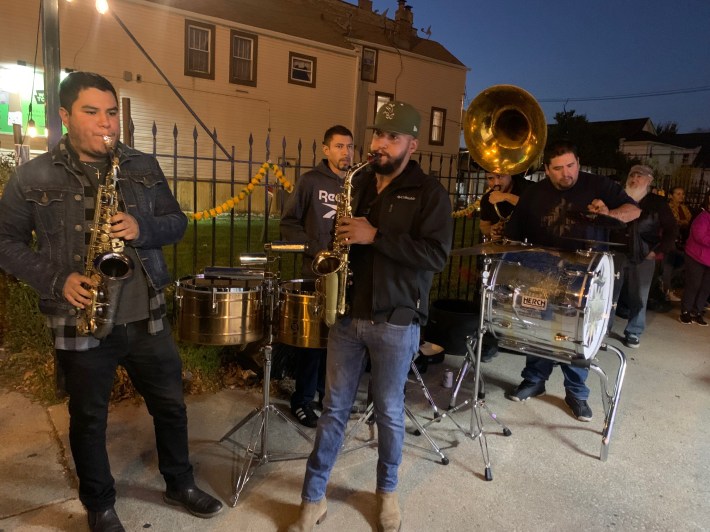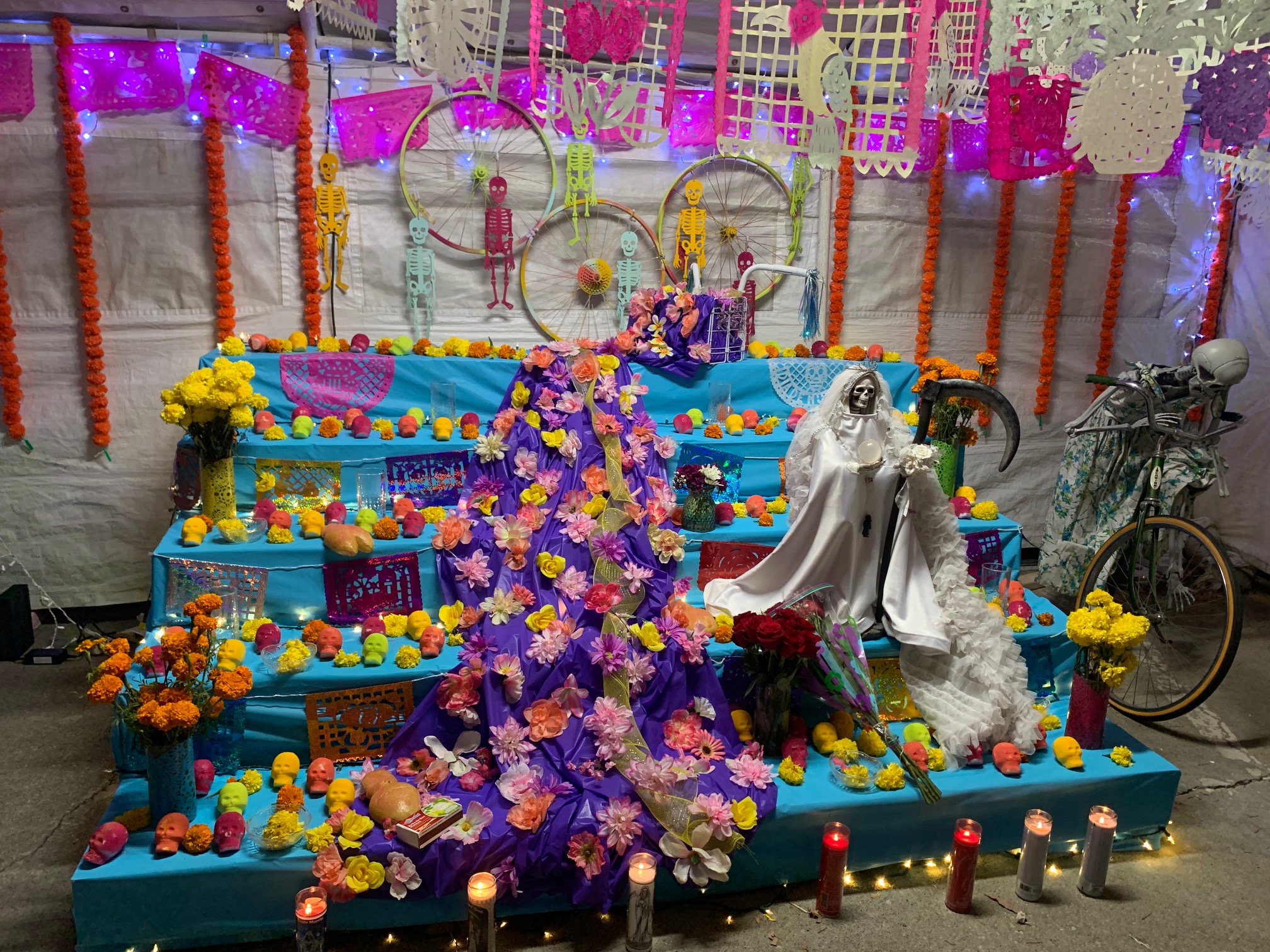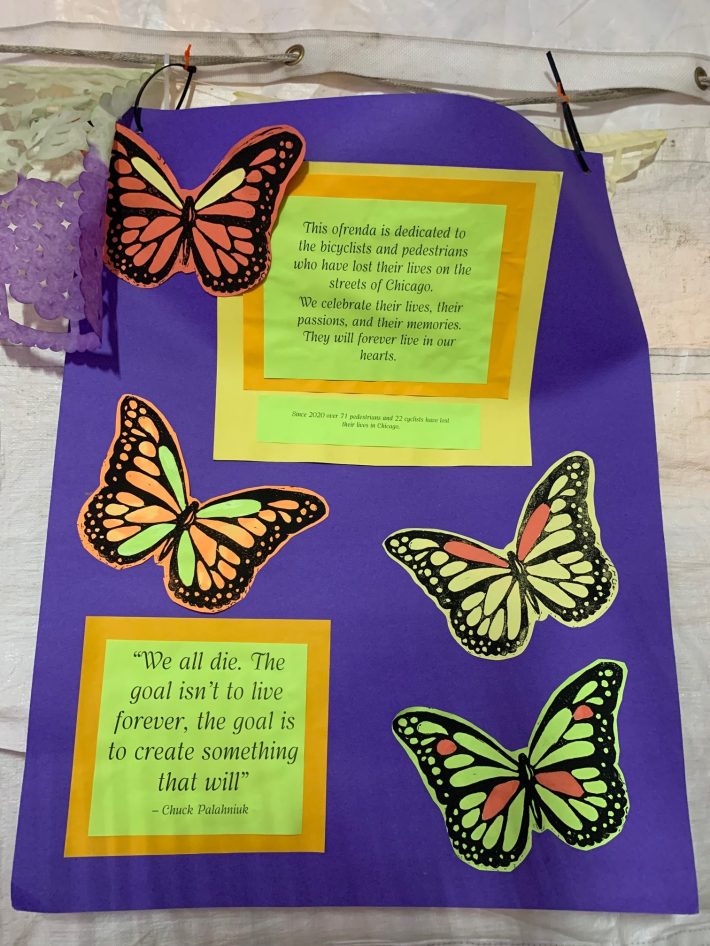On Wednesday, Palenque LSNA (formerly Logan Square Neighborhood Association) held a Dia de los Muertos celebration in the Hermosa neighborhood, on Armitage Avenue between Pulaski Road and Kostner Avenue. The event, entitled Noche de Calaveras – or Night of Skulls – featured performances, family activities and an altar for fallen cyclists created by Norma Rios-Sierra, Palenque’s cultural events manager.
Dia de los Muertos altars, or ofrendas, are created in memory of those who have died, and invite the spirit of the deceased to visit, with bright decorations, flowers, food and drink. Rios-Sierra said she was inspired to create a community altar to cyclists because of the surge in people on foot or bicycle killed by drivers since the pandemic. “This year I was inspired by the work Palenque did with [the equitable transit-oriented development think tank] Elevate Chicago that had a lot to do with equitable development and walkability of our neighborhoods,” she said. “I did a little research and realized there’s a whole database on bicyclist and pedestrian deaths. I thought that was so sad. There were a lot more deaths during the pandemic. The number of people killed on the streets was higher. I thought it was time to create a space to honor those people who had been lost.”
Rios-Sierra also cited the white-painted ghost bike memorials installed at the sites of fatal crashes as partial inspiration for her ofrenda. “[The ghost bikes] are honoring the person who was lost but also drawing attention to what’s happening there. The altar in that way calls attention to the fact that our streets are not always safe to be riding bikes or walking and maybe we should do something about that. This community in particular is a working-class immigrant community and I’m almost positive that a lot of us walk or bike.”

I attended Noche de Calaveras around 6 p.m., as the sun was setting. It was an unusually warm evening for November and a bright, waxing moon hung above the many Latino-owned storefront businesses and restaurants lining the south side of Armitage. On the north side of the street, just west of Keeler Avenue and in the lot next to the small shop Latino Plus+, a large white tent was brightly lit and festooned with garland. Inside, a five-tier altar displayed flowers, colorful skulls, loaves of pan dulce and a small skeleton holding a scythe and dressed in white.
Bicycle wheels hung on the backdrop and a pair of white-painted handlebars rested on the top tier. To the right of the altar, a skeleton in a flowered dress sat atop a vintage Schwinn cruiser. On the side wall of the tent, posters in Spanish and English stated the ofrenda was dedicated to pedestrians and bike riders killed by drivers. On the posters was the sobering statistic: “Since 2020 over 71 pedestrians and 22 cyclists have lost their lives in Chicago.”

And yet, the spirit of Dia de los Muertos acknowledged grief in the midst of festivity. A small brass band was setting up when I arrived and soon broke out into an upbeat waltz. A crowd gathered on the sidewalk and parking lane, bouncing to the music and visiting the tent housing the community ofrenda. Rios-Sierra told me the community altars create a space for healing. “[The altars] normalize the idea we can grieve collectively and move forward collectively. Just like we plan festivals and fun events, we also have to stand together when things get tough,” she said. “Hopefully the altar is something that helps bring people a little bit of joy while bringing attention to the fact we need to make our streets safer.”







